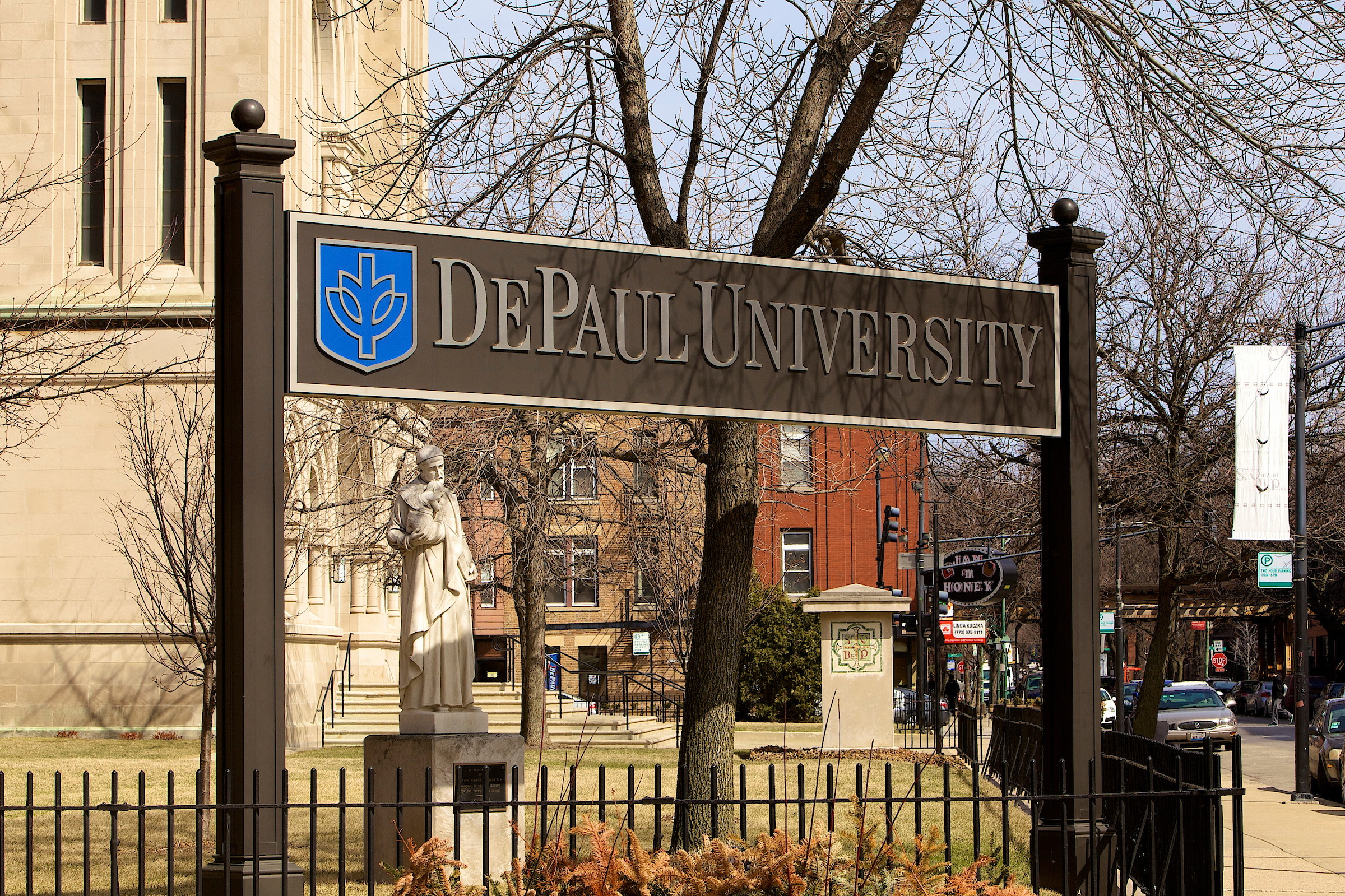 DePaul's Lincoln Park Campus. (DePaul University/Jeff Carrion)
DePaul's Lincoln Park Campus. (DePaul University/Jeff Carrion)
DePaul builds its annual budget, in part, through a process that involves representatives from all university constituents: faculty, staff, students and administration.
Members of the Strategic Resource Allocation Committee, or SRAC, will begin meeting next week to hear presentations from Human Resources, Enrollment Management and Marketing areas as well as from the Offices of the President, Academic Affairs and the Executive Vice President. The presentations will address topics such as compensation and benefits, tuition pricing, enrollments, proposed expenses and funding for strategic initiatives.
Based on that information, the committee then prepares a university-wide budget for recommendation to the president for approval.
To learn more about the annual budgeting process, read this Q&A with Jeff Bethke, executive vice president and chair of SRAC.
How does the Strategic Resource Allocation Committee work? Who serves on it?
During the spring and summer, I provide periodic briefings to SRAC members on the university's financial position. The members also have the opportunity during those briefings to share budget process ideas. In November, the members meet to consider how to balance key university costs in the next fiscal year with expected revenue.
SRAC doesn't make recommendations for budgets of specific departments or units. Those amounts are set by each of the three executive areas, President, Provost and EVP, as inputs to the SRAC process. The committee then takes those aggregated funding requests and assembles a university-wide budget by making recommendations on items such as merit compensation increases, benefits adjustments, such as the recent increases to the university's 403(b) match, funding for capital maintenance, support for financial aid, and other such broad expense categories.
SRAC's nine members are drawn from the leadership of DePaul's faculty, staff, students and administration. In addition to myself, the other voting members of SRAC for 2017-18 are:
- Marten denBoer, provost
- Sherri Sidler, controller
- David Miller, dean, College of Computing and Digital Media
- Salma Ghanem, dean, College of Communication
- Bamshad Mobasher, Faculty Council president
- Michaela Winchatz, Faculty Council representative
- Charles Snelling, Staff Council president
- Michael Lynch, Student Government Association president
Total enrollment at DePaul has declined over the past few years. How did SRAC take this into account when forming the 2017-18 budget?
DePaul's total student enrollment hit an all-time high in 2011 and has been gradually declining each year since then. In the fall of 2011, we had 25,398 students at DePaul and, as of this fall, we have 22,769 - that's nearly a 10½ percent decline over the last six years. While that rate of enrollment decline is not out of line with the demographic changes impacting the entire U.S. private higher education sector (and particularly here in the Midwest), decreasing enrollments has a very real impact on our overall financials and makes for a very challenging budgeting environment. In response, SRAC built a recommended budget that addressed those issues while making investments in strategic growth and investments in faculty and staff. SRAC also reserved some funds in case the state did not fund the Monetary Award Program (MAP), a very important grant program that provides crucial assistance to low-income students.
To help DePaul remain a competitive workplace, last year SRAC recommended a 2.5 percent merit pool and voted to increase the university's 403(b) match from 9.0 percent to 9.5 percent. The committee also voted last year to enhance paid maternity leave by adding two additional weeks of pay and providing two weeks of paid paternity leave; and introduce a tuition waiver for part-time staff that matches the tuition waiver currently offered to adjunct faculty.
To address the budget challenges associated with declining enrollments, inflationary cost increases and tuition affordability concerns, SRAC recommended budget reductions. Individual departments and units made the decisions on how to achieve those reductions.
What issues will SRAC members face when forming a recommendation for the 2018-19 budget?
DePaul exceeded enrollment projections for the fall, however that budgeted target anticipated a decline from last year. We're starting the academic year with 341 fewer students than last fall. Based on demographic, economic and competitive pressures, we're conservatively estimating that enrollments will continue to decline. To remain competitive with our peer institutions and to attract cost-conscious students, we need to be very careful about any changes to tuition pricing.
Though the university still faces challenges, we understand the need for nurturing growth areas, providing exceptional learning and career outcomes for our students, and making sure we remain able to attract and retain a talented faculty and staff workforce. SRAC will need to consider how best to balance declining revenue with investments in our future and the university's expenses.
How will the ongoing strategic planning process affect budget planning?
The strategic planning process that will conclude in the spring is more likely to influence next year's budget process - for 2019-20 - than the current one. I'm hopeful the strategic planning process will bring forward ideas for innovation that create opportunities for growth while balancing the need to remain cost-conscious and true to our institutional mission.
Is MAP funding still a concern?
We were incredibly relieved when the state funded MAP for 2016-17 at the very end of the fiscal year and dedicated funding for 2017-18. It's no secret that the state has ongoing budget challenges. DePaul's Office of Community and Government Affairs and Student Government Association have been tremendous advocates for MAP and making DePaul's voice heard, and I expect that advocacy will need to continue. MAP funding is included in the state budget for the current year, but future funding for this important program, for fiscal year 2019 and beyond, remains very much in doubt. DePaul has more students who are dependent on MAP than any other private university in Illinois, so it is difficult to overstate the significance of this program for our university and for our students.